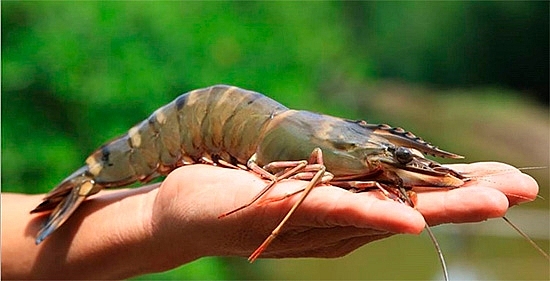Vietnamese shrimp exports to US still need to be careful
 |
| The DOC set tariffs on Vietnamese shrimp exports to 0 per cent |
Even though the 0 per cent tax rate from the DOC is a positive signal, experts in the shrimp industry still advise that enterprises should be cautious to avoid getting caught up in the trade war.
Ho Quoc Luc, chairman of Sao Ta Foods JSC (Fimex), a member of The PAN Group, said that the zero per cent tax rate result is the best in 13 administrative reviews, motivating shrimp businesses to continue exporting to the US.
Accordingly, 31 companies that have applied for a different tax rate or committed to have no shipments to the US within the 13th period of review also enjoy a 0 per cent tax rate, with many being large enterprises like Minh Phu, Fimex, CP Vietnam, and Camimex, among others.
| Is Minh Phu evading anti-dumping duties on shrimp from India? Demand for Vietnam seafood on the rise Shrimp prices see recovery VASEP requests DoC to re-calculate anti-dumping tax on shrimp |
On the stock market, Minh Phu ended the August 22 session by an increase of 7.9 per cent to VND29.900 ($1.3). Fimex (FMX) went up to VND32.200 ($1.4) while Camimex Group (CMX) grew 4.1 per cent to VND30.450 ($1.32).
“The announcement of POR13 tax rate shows that Vietnamese companies have been operating honestly and declaring business data in a complete, accurate, and timely manner. At the same time, the DOC has thoroughly reviewed the documents provided,” Luc said.
Fimex chairman also said that Vietnamese shrimp exported to the US will increase after the official decision of the DOC for POR13. He noted that despite these advantages, shrimp businesses should maintain a moderate growth rate in the US, avoiding adverse situations in the trade war.
According to the Vietnam Association of Seafood Exporters and Producers (VASEP), in the first six months, shrimp exports reached $1.44 billion, down 12 per cent year-on-year. The main export markets declined, with the EU market reaching $300 million, down 26 per cent, while Japan and the US decreased by 2.3 and 3.8 per cent, respectively.
According to the VASEP, after a rockiy first half, shrimp exports in July began recording a recovery. Export turnover to eight major markets – the EU, Japan, the US, China, Korea, Canada, Australia, and Taiwan – all grew.
Notably, the turnover of shrimp exported to the US and China strongly increased. In the first seven months of the year, shrimp exports to the US reached $327.4 million, up 5 per cent, and to China reached $285 million, slightly rising by 2 per cent.
The largest export market is the EU, accounting for about 23 per cent of the current export share, which is evaluated when the free trade agreement (FTA) comes into effect, Vietnamese shrimp in the EU will decrease from 12-20 to 0 per cent from 2020.
The VASEP said, along with expectations of the low POR13 tax rate, US demand for shrimp imported from Vietnam is increasing, while the nation is also reducing imports from India, Thailand, and China.
Meanwhile, Chinese demand for imported shrimp also grew as the country reduces importing from other suppliers affected by bad weather and disease. However, the depreciation of the yuan will greatly affect shrimp exports to China from both Vietnam and the world.
Earlier, Minh Phu, the largest shrimp producer and processor in Vietnam, was accused by a US senator for evading US anti-dumping tariffs on shrimp from India. Minh Phu's case raised worries affecting the DOC's tax investigation.
However, so far, there have been no official moves against Minh Phu, which has been largely off the review lists of US authorities since it won its last anti-dumping lawsuit.
What the stars mean:
★ Poor ★ ★ Promising ★★★ Good ★★★★ Very good ★★★★★ Exceptional
Related Contents
Latest News
More News
- Opening remarks of 14th National Party Congress (January 20, 2026 | 09:44)
- First working day of 14th National Congress of Communist Party of Vietnam (January 19, 2026 | 08:54)
- Viettel starts construction of semiconductor chip production plant (January 16, 2026 | 21:30)
- Redefining Vietnam’s growth model for the era of innovation (January 16, 2026 | 16:40)
- Foreign sentiment towards Vietnam turns more positive (January 15, 2026 | 11:08)
- Vietnam ranks 38th in global AI adoption (January 14, 2026 | 16:01)
- European business confidence reaches highest in seven years (January 13, 2026 | 10:17)
- UOB lifts Vietnam growth outlook to 7.5 per cent for 2026 (January 10, 2026 | 09:00)
- Vietnam leads ASEAN in EV market growth (January 09, 2026 | 14:39)
- Electronics drive Vietnam’s trade growth as exports hit record in 2025 (January 07, 2026 | 10:23)

 Tag:
Tag:





















 Mobile Version
Mobile Version